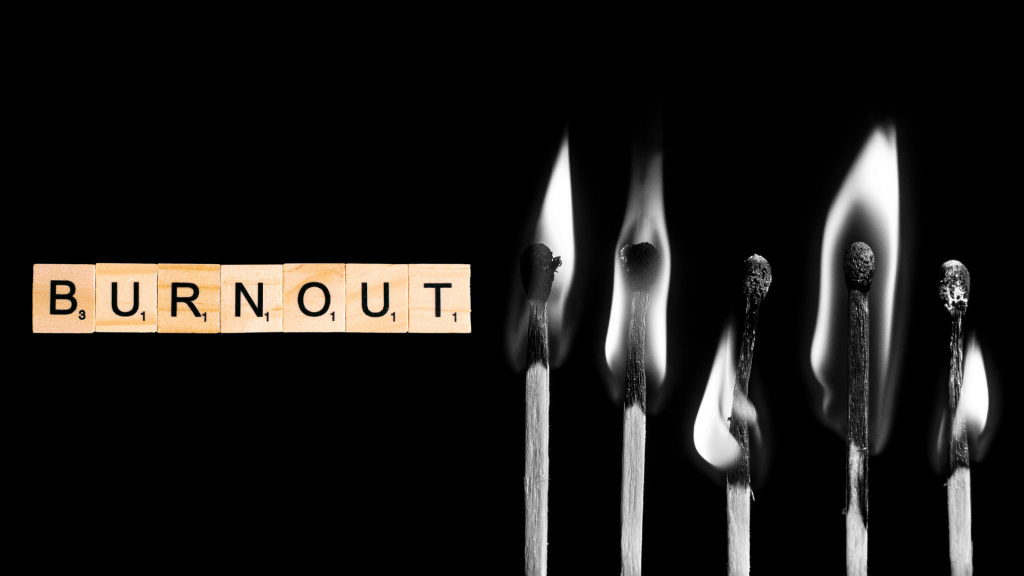BURNOUT - When You Do Need To Quit Your Job
Whether you work for a small business or a large corporation, managing burnout is a challenge. But there are things you can do to lessen the impact on yourself and others.
Many professionals don't realize how important it is to manage burnout. If they did, many more people would take action and not just keep doing something they hate; this is why many quit their job even though they know they need to change their situation. The main thing to remember is that you are not alone in your burnout problem.
It's perfectly normal to want to quit your job if you're not enjoying it. The next step is figuring out what you can do instead. It may take a little work, but it's possible to make this transition from "Quit!" to "Why not?
When quitting your job, it's important to remember that leaving a job is not the best option for you or your finances. Quitting a job could have negative consequences that can last for years. So, what's the alternative? I'll tell you exactly how you can stop feeling burned out at work and how you can handle situations when you need to quit.
If you feel that you can't go on, you must take the time to understand why you think or feel this way. You may not realize why you're experiencing burnout until you analyze the situation.
What are some of the signs that you're burning out?
Burnout is a significant problem for millions of people.
Previously, the only option was quitting your job and hoping things would improve. Now, we have many new solutions to deal with burnout. One of these is to find out what's causing burnout so that you can solve the problem. You probably have no idea that burnout can cause you to do unhealthy things for yourself, your family, and your colleagues. The most common symptoms include:
- Feeling depressed, anxious, or angry.
- Not enjoying your work
- Losing interest
- Trouble concentrating
- Getting into arguments
- Being frustrated by other people
- Having problems sleeping
- Conversations become stressful or difficult
- Feeling like there's no point in going to work anymore
Many people don't realize how important it is to manage burnout; this is why they keep doing something that's making them miserable.
I am a freelancer, but I have been an employee for more than two decades, just like you. Burnout was a challenging phase in life, but I managed to work around it and conquer burnout. Here are my realizations.
1. Burnout Is Not A Disease
It's an emotional response to the challenges you phase in your career. If you develop burnout, you will likely experience many physical symptoms, such as headache, fatigue, and heart palpitations.
No matter what happens, you won't suddenly wake up one morning and find yourself suffering from burnout. The reality is that many other things can cause pain in your head or cause you to feel tired all day long. The truth is that you're not going to be able to avoid burnout by avoiding your job or just "powering through it." The only way you will stop feeling burned out at work is if you begin to make some changes to your lifestyle. You need to get some rest every day. That means you should go to bed earlier to get the needed sleep.
2. Remember That You Have A Life Outside Of Work
Another important thing you should remember is that you have a life outside work. In other words, when you do go home, you must take time to relax and enjoy yourself. So, take time off.
Taking time off from work should be a regular part of the life of an adult. Whether you're going to take a vacation or you're going to use the time that you spend in the office to work on your burnout, you shouldn't feel guilty. The best thing you can do is take care of yourself and return to work refreshed and ready to tackle whatever comes your way. If you try to keep working and working without ever taking time off, you'll feel exhausted and frustrated.
3. Set Clear Boundaries At Work
While it may sound like common sense, most people don't have clear boundaries at work. In other words, they often don't set limits for acceptable behaviour at work.
When you're at work, you should avoid doing unacceptable things that you wouldn't want someone to do to you. For example, if you're going to make it your goal to avoid doing the same monotonous tasks every day, you need to do everything possible to ensure that you won't be asked to do the same boring tasks every day, and this might include telling your boss and a few colleagues about this.
Remember That Burnout Is An Emotional Reaction To Stress
Not all stress is bad. Stress can be good because it can make you more productive and better at your job. But, some situations at work can cause you to feel stressed out. These stressors can include being stuck in traffic or unable to do what you want because of a lack of resources or support. So, you'll want to do your best to avoid any stressors at work. You'll want to avoid anything that will trigger your emotions, such as being yelled at by a coworker or not working on projects you need to complete. I know this is not easy, so you need to speak up.
What if your stressor is your boss, a colleague, or an unhealthy and hostile work environment? These things can create stress for you, but you'll have to take steps to reduce the stress they cause.
When you're feeling burned out at work, you're going to start to feel anxious, and you're going to feel like you have panic attacks. As a result, you'll feel like you can't breathe. It's important to understand that you're not going to suddenly be able to feel better by taking a break from your job. However, you can start to take steps to make sure that you feel more comfortable when you return to work.
Here are three steps to deal with these stressors:
1. Take a deep breath. When you're feeling stressed out, you will have a hard time breathing deeply. To help you calm down, you'll want to practice breathing exercises that will allow you to slow your heart rate and your breathing down.
You'll want to take the time to breathe in and out. You can try counting to four when you do so. It's also crucial that you don't get distracted by anything when trying to breathe deeply.
2. Find ways to relax. You can do many things to help you relax at work. For example, you can take the time to do yoga or meditation.
You can also take the time to listen to music while working. Listening to music will help you relax.
If you feel like you're not getting any relief from your work, you should consider finding a hobby. If you don't have a hobby, you can create one for yourself.
3. Talk to someone about how you're feeling. If you're feeling stressed out at work, you'll want to make sure you can talk about it with someone.
You'll want to talk to someone who can support you and is compassionate and kind. You'll want to talk to supportive people so that you know that they understand what you're going through.
So, you've done everything you can to manage burnout, yet still, you are burned out. When can you quit your job?
Besides the obvious answer of 'never,' there are a few more things you need to consider. The first one is how to get the best value from your job. If you're working in a dead-end job that doesn't offer a great return on investment, you may be better off finding something else to do. However, if you're passionate about your current career, you should probably stick it out for a while longer.
Ask yourself these questions:
Is your job the only thing you have going for yourself? Do you have other marketable skills? What does your savings account look like? Will you be able to manage your expenses for weeks or months while you are job hunting? Do you have anything or anyone to fall back on if you quit and can't find a job? Do you have a family who needs you?
The next consideration is whether or not you're ready to quit. It's not a good idea to jump ship unless you know that you have a job lined up. You could make a significant mistake by quitting before finding a job and ending with nothing. If you're not sure you're ready to leave, consider talking to your boss. They may be willing to help you find a new position. If they aren't, you should probably stick it out until you find a new job.
From the frying pan straight to the fire.
This is cliche but true. You will be miserable when you're working in a job that doesn't give you what you need. So, when you get a job that isn't working for you, it's essential to improve the situation.
In many cases, you'll first want to figure out why the job is making you unhappy.
Ask yourself:
- Why am I doing this?
- What are my goals?
- What do I want to accomplish?
- What's most important to me?
- More importantly, ask yourself - what if I would still experience burnout in my next job? What if it is worse compared to your current situation? What then?
It's not always easy to change a job, but you should never give up on improving the situation.
Career advice
As mentioned previously, burnout is an emotional reaction to stress.
Stress can come from many sources. It can be caused by a lack of control over work, finances, or unfulfilled needs, such as having a family or living in a particular location. Work stress and personal stress are interconnected because we often don't see the connection between the two. If our work is going well, we have the time and resources to deal with all the issues at home.
In brief, burnout is a symptom of not handling the relationship between the two.
The good news is that you can learn to better manage your work and personal life. You can start by recognizing the connection between work and personal life. Then, you can make your work and personal life a happier experience.
How can you make it easier to balance your work and personal life?
Think about it. Where do you put your attention? Do you give more attention to one or the other?
In this situation, it makes sense to be less focused on work and more focused on your family or friends. It's also important to recognize that while your job is one of the things you have to deal with, it doesn't need to consume your entire life. It might be helpful to separate your personal and work life, but not too much.
If you find yourself constantly giving more attention to work than your personal life, you may have some work stress. You can take a step back and see how you're feeling. Ask yourself if you're doing something at work that you think is causing you stress.
Whereas before, you might have tried to handle everything on your own, it might be a good idea to talk to someone you trust. This way, you can get help in dealing with work-related stress.
A positive attitude is also essential. If you have a negative attitude towards work, then this will lead to more stress. Instead, you need to think about how to make your job work for you. What do you like about your job? How could you use the skills you have to make your job better? You might find yourself avoiding your work if you have a negative attitude. But, by making your job more rewarding and enjoyable, you'll be able to keep your energy and enthusiasm up.
Conclusion
The most important thing to remember is that you shouldn't give up trying to improve your life.
You can learn how to handle your job and personal life better. And, as a result, you can reduce the amount of stress you feel.
When you're feeling stressed out, you might have a hard time making decisions. That's why it's crucial to have a clear plan for what you want. You need to set goals and make a plan to achieve them.
A plan is like a road map to follow. It gives you an idea of where you want to go, what you need to do, and how to get there. The good news is that you can use a plan to make your work and personal life more rewarding and enjoyable.
I hope this article was able to help you. Good luck with your work and personal life. Take care and be well!

.png)


Comments
Post a Comment